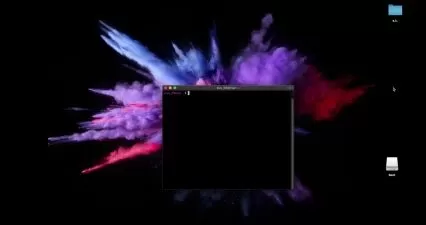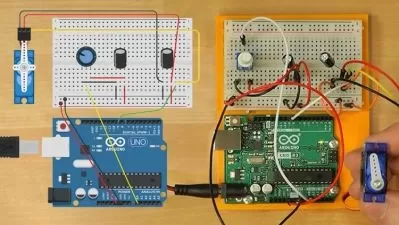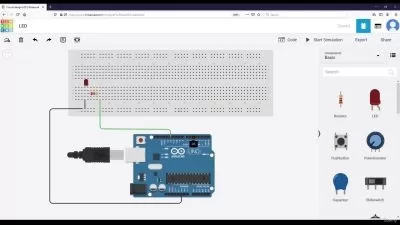TinyML with Arduino Nano RP2040 Connect
Subir Maity
1:35:19
Description
Machine learning model development for tiny low power microcontroller such as Arduino nano RP2040 connect.
What You'll Learn?
- To be able to understand hardware requirement for development of machine learning model for tiny MCUs
- Understanding the tinyML development framework
- To be able to create tinyML projects based upon hand gesture
- To be able to develop tinyML model with audio keyword detection
Who is this for?
More details
Description**Note: This course is not finalized yet. As you know, the TinyML field is constantly growing and developing. So, keeping in mind more sections with theoretical explanations with hands-on project ideas will be included in the near future.
Tiny machine learning, which targets battery-operated devices, is broadly defined as a rapidly expanding field of machine learning technologies and applications that includes hardware (dedicated integrated circuits), algorithms, and software that can perform on-device sensor data analytics at extremely low power, typically in the mW range and below. It eliminates the requirement to send data to the cloud for classification thus providing more security. Also, power-hungry processors are being replaced by a tiny MCU. Of course, there are limitations. The limitations came from limited hardware resources, clock speed, etc. Still, there are several application areas where high computation is not required and a machine learning-based solution is desirable. In that case, TinyML will come into the picture. It can be used to detect anomalies in machinery in a factory, it can predict maintenance requirements of the instruments, healthcare field, and so on. The application domain of TinyML is wide and the future is bright.
The primary objective of this course is to be familiar with TinyML development starting from data collection, model training, testing, and deployment. A low-cost Arduino nano RP2040 connect board having 265KB RAM and 16MB flash with in built accelerometer, Gyroscope, Microphone, temperature sensor, and wireless connectivity module (WiFi+Bluetooth) is used in this course and all example demonstrated here is tested on this board.
Who this course is for:
- Beginner, interested to develop machine learning model in low cost, low power microcontroller
**Note: This course is not finalized yet. As you know, the TinyML field is constantly growing and developing. So, keeping in mind more sections with theoretical explanations with hands-on project ideas will be included in the near future.
Tiny machine learning, which targets battery-operated devices, is broadly defined as a rapidly expanding field of machine learning technologies and applications that includes hardware (dedicated integrated circuits), algorithms, and software that can perform on-device sensor data analytics at extremely low power, typically in the mW range and below. It eliminates the requirement to send data to the cloud for classification thus providing more security. Also, power-hungry processors are being replaced by a tiny MCU. Of course, there are limitations. The limitations came from limited hardware resources, clock speed, etc. Still, there are several application areas where high computation is not required and a machine learning-based solution is desirable. In that case, TinyML will come into the picture. It can be used to detect anomalies in machinery in a factory, it can predict maintenance requirements of the instruments, healthcare field, and so on. The application domain of TinyML is wide and the future is bright.
The primary objective of this course is to be familiar with TinyML development starting from data collection, model training, testing, and deployment. A low-cost Arduino nano RP2040 connect board having 265KB RAM and 16MB flash with in built accelerometer, Gyroscope, Microphone, temperature sensor, and wireless connectivity module (WiFi+Bluetooth) is used in this course and all example demonstrated here is tested on this board.
Who this course is for:
- Beginner, interested to develop machine learning model in low cost, low power microcontroller
User Reviews
Rating
Subir Maity
Instructor's Courses
Udemy
View courses Udemy- language english
- Training sessions 16
- duration 1:35:19
- Release Date 2022/12/11









